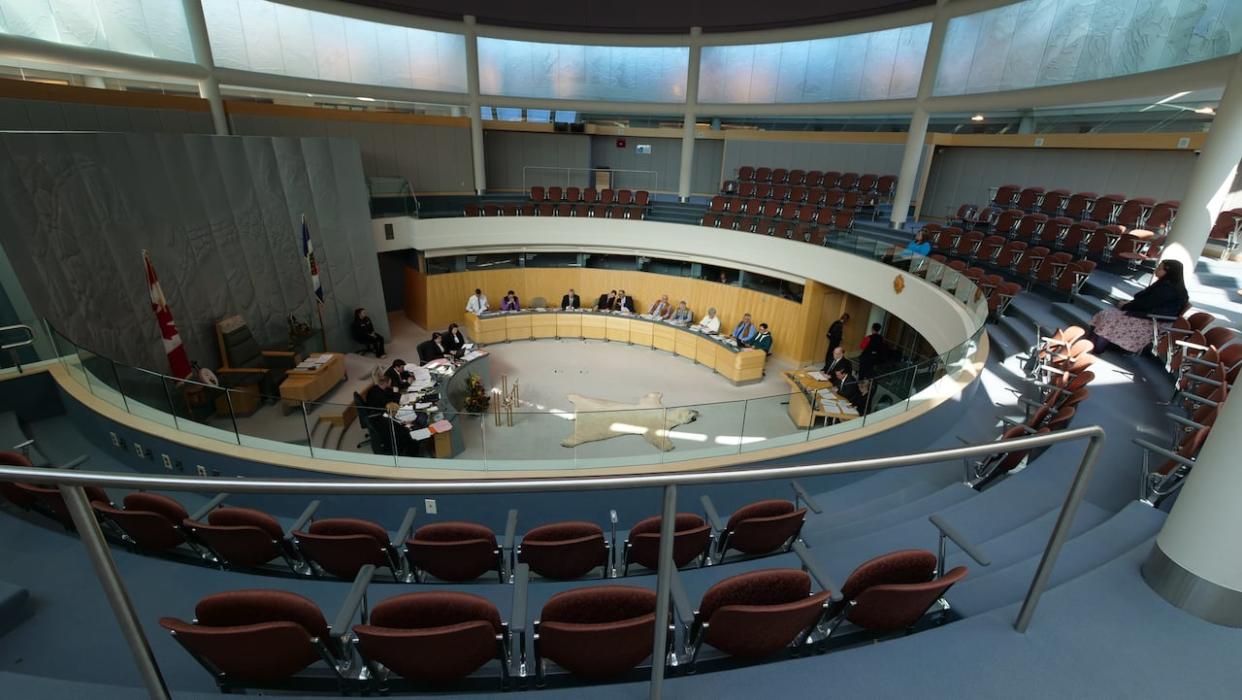What does it take to lead the territory? Former N.W.T. premiers weigh in

If you're going to lead the territory, you've got to be willing to work hard.
Former premiers spoke to the need for collaboration, flexibility, strong listening skills — but mostly, hard work.
"If you can't handle the stress and the rough and wild turbulent ride you'll be on, forget it. Stay home," said Stephen Kakfwi, N.W.T. premier from 2000 to 2003.
"It's not a 9 to 5 job, I can tell you that," said Caroline Cochrane, who is technically still serving as premier until the new one is sworn in Dec. 7.
From 9 to 11:30 a.m. on Thursday, MLAs vying for the territory's top job will deliver a 20 minute speech pitching themselves for the role.
On Dec. 7, MLAs will then have the chance to ask premier candidates two questions before casting their vote.
The Speaker and cabinet will also be elected on Dec. 7.
Flexibility, planning and optimism
Cochrane called it "the most honourable position," but added it comes with a lot of responsibility.
She says listening and flexibility are some of the most critical skills a premier should have.
"To actually hear past their words, sometimes past their anger, their emotions to what the issues are and flexibility to be able to look for solutions," she said.

N.W.T. Premier Caroline Cochrane says her successor will need listening skills, flexibility and to be ready to work hard. (Justin Tang/CP)
"Sometimes you can't say yes to everything but trying to find a solution. I believe in my heart that if you sit at the table long enough, that you work together long enough, you will find something that works."
Her advice for her successor? Plan as much as possible.
Something like a global pandemic is not something a premier could have foreseen, Cochrane said, but there are clear signs of climate change.
"We are going to have more floods, we are going to have more fires … make sure you do as much planning as possible so that if those things take effect, you're ready to address them as best as possible," she said.
Kakfwi said that to lead an effective cabinet, it's important to know their strengths and weaknesses.
"It seems to me that whoever is gonna go forward, should have an idea already of who among the MLAs that have been elected is interesting to consider working with," Kakfwi said.
He also said that to tackle the territory's housing crisis, mine closures and rising cost of living, the job requires optimism.
"The people of the North need it."

MLAs at their swearing in ceremony on Nov. 24. On election night and in the days that followed, only R.J. Simpson, middle, said he would be running for N.W.T. premier. (Julie Plourde/Radio-Canada)
Both premiers also spoke to the importance of collaborating — not just consulting — with Indigenous governments. That's something the new assembly began ahead of voting for cabinet and premier, having met with representatives of Indigenous governments and organizations on Tuesday.
The meetings were closed to media and the public, but were described in a news release as intending to "help build strong relationships and begin the process of establishing the priorities for the 20th Legislative Assembly."
Any MLA can make a bid for premier, though typically they would serve at least one term as MLA first.
CBC News reached out to each candidate to ask if they would be putting their name forward, on election night or in the days that followed the election.
At the time, only R.J. Simpson, MLA for Hay River North definitively said yes.
Lesa Semmler, MLA for Inuvik Twin Lakes, said after being re-elected she had people asking her to run for premier but that she hadn't made a decision yet.
Caitlin Cleveland, MLA for Kam Lake, is the only MLA who said she would not be running for premier.
Despite some questions about whether MLAs' votes should be made public, a spokesperson for the N.W.T. Legislative Assembly confirmed that the members have decided to vote by secret ballot.


